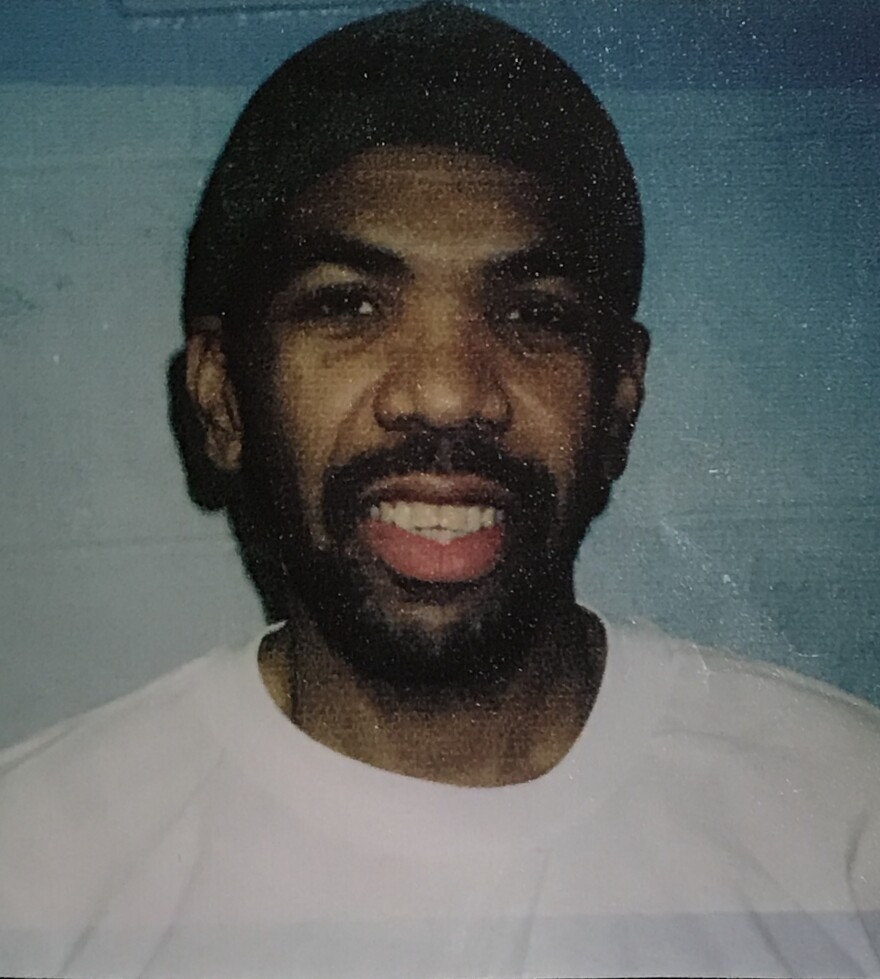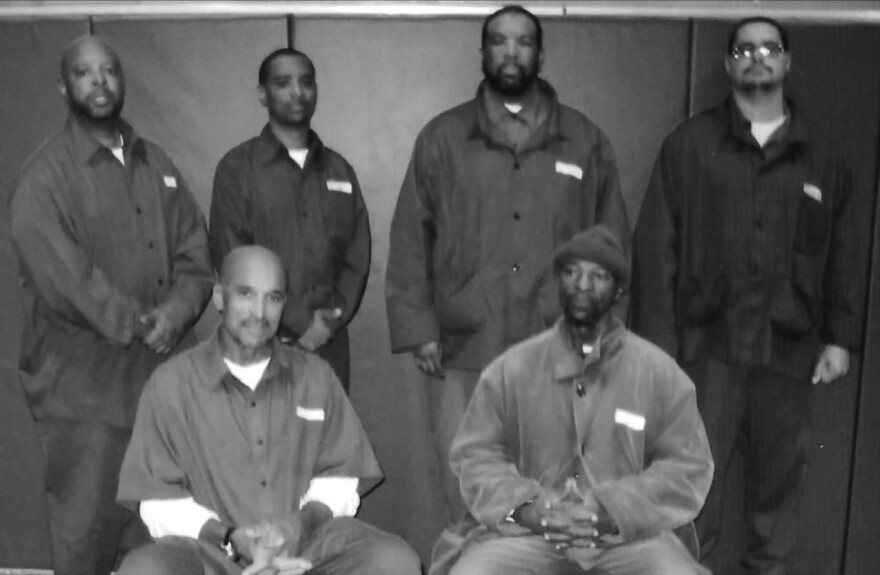More than 5,000 people are serving life sentences in Pennsylvania prisons, without the possibility of release. Ralph “Malakki” Bolden is one of them. He was convicted of first-degree murder after killing a man during a robbery in 1994.
In prison, Bolden, has taken to writing. And he and five other men, most of whom are also sentenced to life, chronicle their experiences in a new book, called "Life Sentences."

Bolden’s co-authors include Oscar Brown, Richard “Khalifa” Diggs, James “Fly” Martin, Clarence “Shawn” Robinson, and Robert “Faruq” Wideman. The men once resided at the now-shuttered state prison in Pittsburgh, and it was there, Bolden said, that they met local professors who encouraged them to write a book.
Bolden, who now resides at a state prison in Erie County, said Life Sentences is meant to humanize the thousands of people toiling behind bars today.
“When we incarcerate someone,” Bolden said, “we send them away from us, like trash, throwing it away.”
But, Bolden continued, “I hope our book lets people know that, although we have made some bad choices in our lives, we are still human beings. And most of us here in these prisons do want to change. We want to get better.”
‘You killed more than one person’
Bolden, who is African-American, writes in "Life Sentences" that his crime was a reaction to a system that was “seeking to grind [him] into the ground.” But he holds that inequities such as racial discrimination did not justify his actions.
Victims of trauma, Bolden said, become victimizers themselves because “they’re trying to figure out what to do with the world, how to define the world.”

Bolden said his family sought to counsel him as he struggled with anxiety and became increasingly disillusioned with society. But he ultimately rejected their efforts, and that reaction, he said, was a mistake.
“I still had choices,” he said. “I tried to get help. It didn’t work. I should have tried again.”
Today, Bolden contends that he would have made different decisions if he had had access to better mentors. The right mentors, Bolden said, “would have let me speak and talk and say what’s on my mind, and then go through the pros and cons with me.”
But the African-American community, he said, lacks “male mentorship.”
“And without that,” he said, “you’re kind of just … trying to figure things out for yourself.”
Now 53, Bolden said he accepted responsibility for his crime at his trial 23 years ago. Bolden remembered that the wife of the man Bolden had killed delivered a statement.
“She said, ‘I’m not sure if you understand, but you just didn’t kill one person. You killed more than one person,'" he said. "'This man was my friend, my best friend, my children’s father, someone’s son.’”
Until then, Bolden had not considered how his crime had impacted anyone but the man he shot.
“And I look behind me [in the courtroom], and I saw the tears,” Bolden said, growing emotional. “I saw the tears and the faces of my family also. … And I’m like, 'What did I do?'”
In that moment, Bolden continued, “All the bravado and the [braggadocio] and the street, all that stuff just left. And that … [was] something within me, that I saw that I had to get better. That I was really sorry for what I had done.”
‘Do you want them to come home better or bitter?’
Bolden was initially sentenced to death row. But he successfully appealed that decision five years later, and received a life sentence without the possibility of release.

In addition to freeing him from solitary confinement, Bolden said, his new sentence gave him the opportunity to be someone other than “a thug or a tough guy.”
Bolden said older prisoners helped him to change, and he eventually became a tutor and peer counselor for other inmates.
Bolden said he hopes to make prison less of the “social death” that, he wrote in "Life Sentences," it is designed to be.
“Coming to prison is punishment enough,” Bolden said. “That is already the punishment: being smashed out of society.”
“And [since] most of the people who are coming to prison are going to come home,” Bolden added, “what do you want them to come home and be? Do you want them to come home better or bitter? You have a limited opportunity to get to them while they’re here.”




